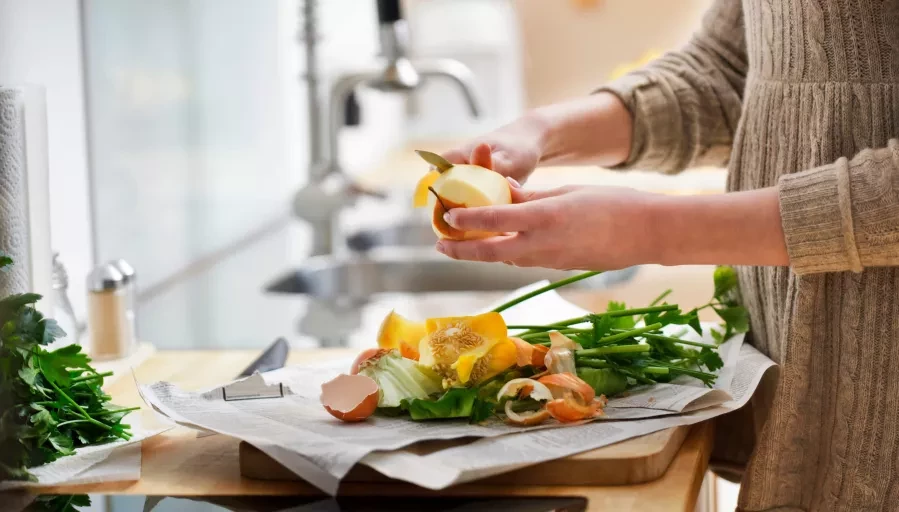
What Not to Compost: Common Contaminants to Keep Out of Your Organics Bin
Learn what not to compost so you can keep contaminants out of your organics bin and extra waste out of landfills.Byline: BTB Author
September 19, 2025 / Time to read: 5 minIn 2015, the USDA joined with the U.S. Environmental Protection Agency to set a goal to
When we compost, we help divert waste from landfills while creating a
But research shows compost often includes unhelpful contaminants — not just beneficial food scraps and yard waste. In
Keep reading to learn what not to compost — including plastics, metals, non-compostable paper products, fats and dairy products — and understand the composting process from bin to soil.
Breaking Down the Composting Process
Before we delve into common compost contaminants, it’s helpful to understand
- Collection
You collect your food and yard waste and place it in your organics bin.
- Transportation
Collection trucks transport loads of organic waste to commercial composting facilities.
- Composting
Your yard and food waste is turned into nutrient-rich fertilizer.
- Circular Economy
Compost makes is sold to landscapers, golf courses, farmers and residential customers, supporting a more sustainable, circular economy.
Common Compost Contaminants
Compost contamination is rarely intentional — it’s often the result of an easy mistake. It may look like a produce sticker left on a banana peel, plastic food packaging that snuck its way into lunch leftovers or packaging mislabeled as compostable.
Watch out for these common compost contaminants.
Fats, Oils and Grease
Small amounts of grease on food scraps are typically okay, but it’s best to avoid dumping large quantities of fats into your compost bin. Oils and grease don’t break down easily and can disrupt municipal composting systems.
Glass
Glass is dangerous in compost due to sharp fragments. It also
Plastics
Plastics are the
Fruit and vegetable stickers are one of the
Other common offenders include plastic utensils, cups, produce and shopping bags, cling wrap, disposable coffee pods and packaging mislabeled as compostable.
It’s also a good idea to keep an eye out for plastic bags and dishware labeled as “biodegradable” or “eco-friendly.” Many will
Metals
Common metal contaminants include twist ties — often found on bread and bakery bags — staples and aluminum foil.
Non-Compostable Paper Products
While food-soiled paper and cardboard — including
Check with your local provider to see if they’ll accept BPI-compostable food packaging and tableware. These products meet the right criteria to break down at some commercial compost facilities within 180 days.
Composting for Your Community
By knowing what not to compost, you can help your community create cleaner, more effective compost while keeping more waste out of landfills.
One important note: Organic waste recycling guidelines vary depending on where you live, so it’s always best to check with your local provider to see what can and can’t go in your organics bin. For instance, some areas may not accept meat or dairy products while others do.
If you’re a Republic Services customer,
You can also explore these
